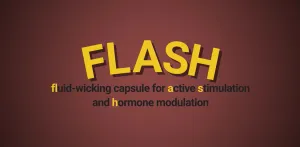(Press-News.org) It’s tempting to argue with someone who is misinformed by showing them studies and articles that prove they’re wrong. But new research shows that there’s another, less confrontational, way to get someone to change their mind.
A new study in Scientific Reports, led by Dolores Albarracín, a social psychologist who specializes in attitudes and persuasion, and the Alexandra Heyman Nash Penn Integrates Knowledge University Professor at the University of Pennsylvania, has found that “bypassing” misinformation is just as effective as debunking it head-on.
This way requires considering what conclusions one wants their audience to reach — Is it that vaccines are safe? Or that Genetically Modified (GM) foods are something to support? — and supporting those conclusions with positive facts the audience may not have considered.
The Bypassing Misinformation Strategy
Though debunking falsehoods with contrary facts works to change people’s beliefs about falsehoods, it isn’t easy. No one likes to be corrected and repeating misinformation to correct it runs the risk of cementing that misinformation into a person’s memory or alienating them if they feel attacked.
In the paper, Albarracín — Director of the Science of Science Communication division at the Annenberg Public Policy Center (APPC) and a faculty member at the Annenberg School for Communication, the School of Nursing, and the Department of Psychology — and co-author Christopher Calabrese, formerly a postdoctoral fellow at APPC and now assistant professor at Clemson University, propose bypassing as a new method for addressing the outcomes of misinformation.
The bypassing strategy involves identifying a conclusion, such as “vaccines are safe,” and figuring out how to bolster that conclusion with accurate information that doesn’t directly refute misinformed claims.
For example, to bypass a belief that vaccines cause health harm, one might highlight the positive impacts that vaccines have had around the world, such as vastly reducing child mortality. That alone can increase the conclusion that vaccines are desirable, without confronting that person with facts and figures to counter a false belief about vaccines.
"A fear that vaccines cause autism might be one belief that shapes a person’s attitude toward vaccines,” says Albarracín, who is also the director of the Social Action Lab at Annenberg, “but humans hold many beliefs at once. Bringing attention to positive ones can change people’s minds.”
Correcting vs. Bypassing
For the study, Albarracín and Calabrese carried out three experiments to test the efficacy of this strategy.
During the first two experiments, participants read an article falsely claiming that a newly-developed GM corn product causes severe allergic reactions.
Some participants then read an article disputing the previous article through facts and an alternate explanation — a correction to the misinformation. Others read an article highlighting a positive benefit to GM foods, either their role in saving bees or ending global hunger — bypassing the misinformation.
As a control, some participants didn’t receive a second article, and others read a second article on an unrelated subject. A third experiment tested a different misinformation article — one falsely claiming that GM corn accelerates tumor growth in rats.
Results
During each experiment, the researchers measured participants' attitudes toward policies that restrict the manufacturing of GM foods (marking them as good or bad and helpful vs. unhelpful) as well as their intention to support these policies.
They found that both bypassing and correction led to less support for GM food restrictions, implying that both had reduced the initial impact of the misinformation that GM foods cause allergies. These results held for attitudes toward GM restrictions and intentions to support the restrictions, which were less positive.
We live in a world where misinformation spreads like wildfire. Bypassing is a tool that policy makers and influential figures should use to fight this misinformation, the researchers say.
“There’s this perceived pressure to go out and debunk misinformation, but we can also strengthen other beliefs and consider misinformation within the wider system of beliefs people hold,” Albarracín says. “Bypassing allows you to work from the point of view of what conclusion you want — highlighting beliefs that support it instead of focusing solely on contradicting the misinformation.”
The paper, entitled “Bypassing misinformation without confrontation improves policy support as much as correcting it” was published in Scientific Reports.
END
Instead of refuting misinformation head-on, try “bypassing” it
A new study from the University of Pennsylvania's Dolores Albarracín has found that redirecting an individual’s attention away from misinformation and toward other beliefs can be just as effective as debunking it.
2023-04-26
ELSE PRESS RELEASES FROM THIS DATE:
AGS honors Dr. Alan Lazaroff for his commitment to geriatrics with the David H. Solomon Public Service Award
2023-04-26
New York (April 26, 2023) — Today, the American Geriatrics Society (AGS) announced that it will be honoring Alan Lazaroff, MD, AGSF with its David H. Solomon Memorial Public Service Award, for his passionate advocacy to better align Medicare payment to meet the unique healthcare needs of older adults and to improve care coordination for patients with chronic conditions.
“Dr. Lazaroff has been involved with the work of the American Geriatrics Society for over 25 years,” said AGS President G. Michael Harper, MD, AGSF. “When the AMA/Specialty Society Relative Value ...
BMI and the adolescent brain: A concerning association
2023-04-26
Obesity is a growing epidemic in children and adults. A large national study published in the International Journal of Obesity now finds that preteens carrying excess weight have notable differences in cognitive performance, brain structures, and brain circuitry when compared to preteens with normal body-mass index (BMI).
Funded by the National Science Foundation’s Harnessing the Data Revolution initiative, the study involved nearly 5,000 9- to 10-year-olds at 21 sites across the United States. While it only examines the relationship between BMI and the brain and cannot establish causation, there is a significant association between ...
Links between pet ownership, stress, and loneliness during COVID-19 explored
2023-04-26
A new analysis suggests that, during the COVID-19 pandemic, US dog and cat owners became closer to their pets, and a complex relationship unfolded between pet ownership, stress, and loneliness. Niwako Ogata and Hsin-Yi Weng of Purdue University, US, and their colleague present these findings in the open-access journal PLOS ONE on April 26, 2023.
The COVID-19 pandemic provides a unique setting to explore pet-owner relationships and potential links between pet ownership and mental health. Several prior studies have investigated these topics in the context of the ...
Oldest human remains from Puerto Rico reveal a complex cultural landscape since 1800BC
2023-04-26
The earliest inhabitants of Puerto Rico might have used common burial sites and mortuary practices across many centuries, according to a study published April 26, 2023, in the open-access journal PLOS ONE by William J. Pestle of the University of Miami, Florida and colleagues.
Puerto Rico was inhabited by people for several thousand years prior to the Ceramic Age, but little is known about these earliest inhabitants due to a paucity of evidence and research, with only 20 ancient individuals reported from this time period. In this study, Pestle and colleagues describe five adult individuals from burials at the ...
Bee abundance and diversity is higher in actively managed green spaces (e.g.: those planted with native wildflowers), according to study in urban Appleton, Wisconsin
2023-04-26
Article URL: https://journals.plos.org/plosone/article?id=10.1371/journal.pone.0281468
Article Title: B.Y.O. Bees: Managing wild bee biodiversity in urban greenspaces
Author Countries: USA
Funding: The authors received no specific funding for this work. END ...
Physical activity might help people with substance use disorders to reduce or cease their usage, with 75% of studies that evaluated it showing a relationship
2023-04-26
Article URL: https://journals.plos.org/plosone/article?id=10.1371/journal.pone.0283861
Article Title: Characteristics and impact of physical activity interventions during substance use disorder treatment excluding tobacco: A systematic review
Author Countries: Canada
Funding: F.P. was supported by a Fonds de Recherche du Québec-Santé doctoral fellowship and she received funding from CICC (Centre international de criminologie comparé) for the translation of the article. The two funders had no role in study design, data collection and analysis, decision to publish, or preparation of the manuscript. END ...
Ingestible electroceutical capsule shows promise for treating gastrointestinal conditions
2023-04-26
The non-invasive FLASH system, inspired by lizard skin, electronically stimulates key hunger hormone
Nature is the greatest teacher. A bizarre-looking lizard with intimidating spikes covering its body helped a team of investigators from Brigham and Women’s Hospital, a founding member of the Mass General Brigham healthcare system, Massachusetts Institute of Technology, and New York University, develop an innovative ingestible capsule that can modify ghrelin, a hunger-regulating hormone, in pigs. Their results, published in Science Robotics, showed for the first time that the ingestible electronic fluid-wicking capsule for active stimulation and hormone modulation (FLASH) ...
Ingestible “electroceutical” capsule stimulates hunger-regulating hormone
2023-04-26
CAMBRIDGE, MA -- Hormones released by the stomach, such as ghrelin, play a key role in stimulating appetite. These hormones are produced by endocrine cells that are part of the enteric nervous system, which controls hunger, nausea, and feelings of fullness.
MIT engineers have now shown that they can stimulate these endocrine cells to produce ghrelin, using an ingestible capsule that delivers an electrical current to the cells. This approach could prove useful for treating diseases that involve nausea or loss of appetite, such as cachexia (loss of body mass that can occur in patients with cancer or other chronic diseases).
In ...
Musical expertise makes older adults better listeners by keeping brain young
2023-04-26
The world’s population is aging at an unprecedented rate. Aging can lead to various types of cognitive decline, posing a serious burden to families and society. Therefore, it is crucial to develop effective interventions to promote healthy aging.
One promising approach is musical training, which is accessible to the majority of the population. Besides the musically rewarding and aesthetic experience of musical training, it also provides potential benefits to the brain, especially for the elderly.
In a study published as a cover story in Science Advances, a research team led by Dr. DU Yi from the Institute ...
ERK activity is a molecular switch between tissue regeneration and scarring
2023-04-26
Why do some animals regenerate lost tissues after injury while others don’t? Researchers from the lab of Kerstin Bartscherer (Osnabrück University and formerly Hubrecht Institute) and Ashley Seifert (University of Kentucky) studied spiny mice, which have a remarkable regenerative capacity, to answer this question. They compared and modulated the injury responses of these mice and common laboratory mice, that show scarring upon injury. This revealed that ERK signalling is a crucial molecular switch between scarring and regeneration. The results of this study will be published on April 26th in the scientific journal Science Advances and imply that ...
LAST 30 PRESS RELEASES:
KRICT develops microfluidic chip for one-step detection of PFAs and other pollutants
How much can an autonomous robotic arm feel like part of the body
Cell and gene therapy across 35 years
Rapid microwave method creates high performance carbon material for carbon dioxide capture
New fluorescent strategy could unlock the hidden life cycle of microplastics inside living organisms
HKUST develops novel calcium-ion battery technology enhancing energy storage efficiency and sustainability
High-risk pregnancy specialists present research on AI models that could predict pregnancy complications
Academic pressure linked to increased risk of depression risk in teens
Beyond the Fitbit: Why your next health tracker might be a button on your shirt
UCSB scientists bottle the sun with liquid battery
Lung cancer drug offers a surprising new treatment against ovarian cancer
When consent meets reality: How young men navigate intimacy
Siemens Healthineers and Mayo Clinic expand strategic collaboration to enhance patient care through advanced technology
Physicists develop new protocol for building photonic graph states
OHSU-led research initiative examines supervised psilocybin
New review identifies pathways for managing PFAS waste in semiconductor manufacturing
New research finds state-level abortion restrictions associated with increased maternal deaths
New study assesses potential dust control options for Great Salt Lake
Science policy education should start on campus
Look again! Those wrinkly rocks may actually be a fossilized microbial community
Exposure to intense wildfire smoke during pregnancy may be linked to increased likelihood of autism
Children with Crohn’s have distinct gut bacteria from kids with other digestive disorders
Genomics offers a faster path to restoring the American chestnut
Caught in the act: Astronomers watch a vanishing star turn into a black hole
Why elephant trunk whiskers are so good at sensing touch
A disappearing star quietly formed a black hole in the Andromeda Galaxy
Yangtze River fishing ban halts 70 years of freshwater biodiversity decline
Genomic-informed breeding approaches could accelerate American chestnut restoration
How plants control fleshy and woody tissue growth
Scientists capture the clearest view yet of a star collapsing into a black hole
[Press-News.org] Instead of refuting misinformation head-on, try “bypassing” itA new study from the University of Pennsylvania's Dolores Albarracín has found that redirecting an individual’s attention away from misinformation and toward other beliefs can be just as effective as debunking it.





